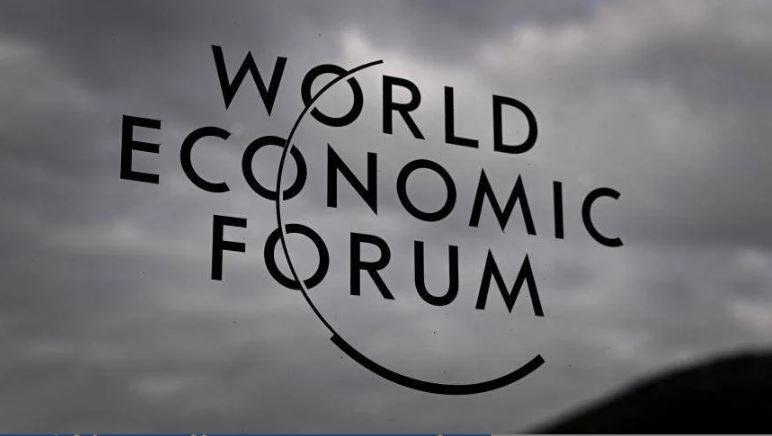
The logo of the World Economic Forum. (Credit: Fabrice Coferini/AFP)
Lebanon has fallen 13 places in the World Economic Forum (WEF)'s 2023 global gender equality ranking.
Ranked 132nd out of 146 countries in the WEF's 2023 annual ranking, reprinted this week by Byblos Bank's weekly newsletter Lebanon This Week, Lebanon dropped from 119th in 2022.
The ranking places Iceland in first place for gender equality, followed by Norway and Finland; meanwhile, Afghanistan remains at the bottom of the list, preceded by Chad and Algeria.
In the Middle East and North Africa (MENA) region, Lebanon ranks seventh out of 12 countries this year, falling between Saudi Arabia and Qatar; whereas, in 2022 it held second place in the region.
The United Arab Emirates (71st place) is the top-ranked MENA country, but according to the ranking, Bahrain has made the strongest progress on gender equality among Arab countries over the past 12 months, jumping 18 places to 113th.
At 62.8%, Lebanon's score is below the world average (68.4 percent), but it is very slightly above the MENA region average (62.6 percent).
In regional terms, Europe fares best in the rankings, with its countries scoring an average of 76.3 percent, followed by North America (75 percent), Latin America and the Caribbean (74.3 percent), Central Asia (69 percent), East Asia and the Pacific (68.8 percent), Sub-Saharan Africa (68.2 percent) and South Asia (63.4 percent). The MENA region brings up the rear.
Methodology
The methodology employed by the WEF for this index remained unchanged in 2023: the closer the score is to 1oo percent, the closer a country is to perfect gender equality, which no country has to date achieved (Iceland tops the ranking with a score of 91.2 percent).
The forum bases its ranking on four pillars: economic participation and opportunities; educational attainment; health and survival; and political empowerment.
According to the categories used by the WEF, Lebanon lies in 127th place (53.8 percent, up 8 places in one year) economic participation and opportunities; 90th (98.4 percent, same place as in 2022) in educational attainment; 68th (97.1 percent, up 7 places in one year but with an unchanged score) for the health and survival; and 144th (2.1 percent, down 34 places in one year) for political empowerment.
Fractured and discriminatory rights
The Lebanon-specific data provided by the WEF as an appendix to the ranking highlights the fact that Lebanese women own just 4.7 percent of the country's companies, while managing only 5.9 percent, a percentage unchanged since 2022.
According to the forum's statistical explanations, these inequalities in economic participation and opportunities cannot be explained by a lack of education.
The report also highlights the fact that women in Lebanon have less access to financial services and fewer legal rights. Lebanese women cannot, for example, pass their citizenship to their children and are at a disadvantage compared to men in matters of inheritance, divorce, reproductive autonomy and access to justice.
Furthermore, the forum notes that there is no paternity leave in Lebanon, and maternity leave is 70 days, or 2.3 months. Finally, although Lebanon obtains better scores for the education and health sectors, it suffers from a lack of data that could impact these scores.
More generally, the WEF considers that gender equality has progressed since its last ranking. According to the established method, which measures the rate of progress in this area, the world will need 131 years to achieve parity in all areas, compared with 132 years estimated in the 2022 ranking.
However, these estimates are still longer than the estimate posted in 2020 (100 years), a sign that the pace of progress has slowed in recent years.